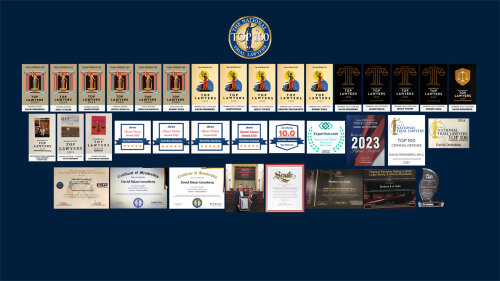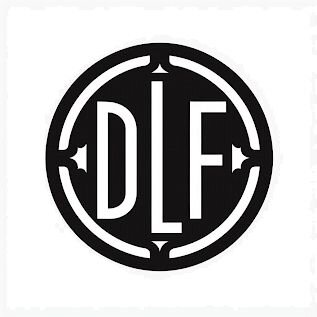Best Bail Bond Service Lawyers in United States
Share your needs with us, get contacted by law firms.
Free. Takes 2 min.
Or refine your search by selecting a city:
List of the best lawyers in United States
About Bail Bond Service Law in United States
Bail bond services play a crucial role in the United States criminal justice system, providing a mechanism for individuals who have been arrested to obtain temporary release from jail while awaiting trial. Essentially, a bail bond acts as a surety, promising that the defendant will appear for their court date. Bail bonds are particularly useful when a person cannot afford the full bail amount set by the court. Instead of paying the entire amount, the defendant or their family can contact a bail bond agent, who will typically charge a fee (usually around 10-15% of the total bail) to post bail on behalf of the defendant. Bail bond laws vary significantly from state to state, influencing how services are provided and what procedures must be followed.
Why You May Need a Lawyer
Obtaining legal assistance in the bail bond process can be critical for several reasons. First, understanding the bail bond process and all associated costs can be complex, and legal advice can help navigate this. Secondly, issues may arise regarding the appropriateness of the bail amount, potentially making it necessary to seek a bail reduction through legal channels. A lawyer can assist in these proceedings to ensure fair treatment. Finally, if a defendant fails to appear in court, they may face additional charges, and a lawyer can help mitigate these circumstances and provide representation.
Local Laws Overview
Bail bond laws in the United States can be quite diverse, given the state-specific regulations. Some jurisdictions might prohibit the operation of commercial bail bond services altogether, while others have established rigorous regulations to oversee the practice. Key aspects of local laws often include the permissible fee percentages, collateral requirements, and the conditions under which a bond can be revoked. Additionally, some states require bail bond agents to be licensed and may implement additional consumer protection laws to safeguard individuals who engage their services. It is crucial for individuals to be aware of the specific laws in their state to understand their rights and obligations when using bail bond services.
Frequently Asked Questions
What is a bail bond?
A bail bond is a financial arrangement that a bail bond agent makes on behalf of a defendant to secure their release from jail in return for a fee, typically around 10-15% of the total bail amount set by the court.
How does a bail bond work?
When a bail bond is issued, the bail bond company assures the court that the defendant will appear for all required court dates. If the defendant fails to appear, the company may employ bounty hunters to locate the defendant and return them to court.
What happens if the defendant misses a court date?
If the defendant skips their court date, a judge may issue a warrant for their arrest. The bail bond company may capture the defendant, and the collateral used for the bail bond may be forfeited.
Can bail be denied entirely?
Yes, a judge can deny bail if the defendant is considered a flight risk, poses a danger to the community, or in capital offense cases where the defendant faces life imprisonment or the death penalty.
Is the bail bond fee refundable?
No, the fee paid to a bail bond agent is considered a service charge and is non-refundable, even if the defendant's case is dismissed or they are found not guilty.
What is a bail hearing?
A bail hearing is a court session where a judge determines whether to grant bail to a defendant, considering factors like the nature of the crime, flight risk, and prior criminal history.
How is the bail amount determined?
The bail amount is set based on several factors such as the severity of the crime, the defendant’s criminal history, the risk of flight, and sometimes, state guidelines or a bail schedule.
How can I find a reputable bail bond agent?
Ensure they are licensed in your state, check online reviews and references, ask for detailed fee structures, and be wary of unusually low rates, as these might come with hidden costs.
Can collateral be used for bail bonds?
Yes, collateral such as real estate, vehicles, or other valuable assets can be used in place of cash to secure a bail bond.
What are the responsibilities of a co-signer?
A co-signer is responsible for ensuring the defendant appears in court and may be liable for the full bail amount if the defendant fails to appear. Collateral provided by the co-signer may also be at risk.
Additional Resources
For more information and assistance regarding bail bonds, individuals can reach out to the National Association of Bail Agents, state-specific Department of Insurance offices, and consumer protection agencies. These organizations can provide guidance and resources to ensure that individuals navigate the bail bond process effectively and lawfully.
Next Steps
If you require legal assistance in dealing with bail bond services, consider contacting a lawyer who specializes in criminal defense or bail bond law in your state. They can provide the guidance necessary to ensure rights are protected and prevent any potential legal pitfalls. To begin, you can seek referrals from the local bar association or explore legal aid services in your area for affordable support. It’s essential to act promptly to ensure proper representation and management of the bail process.
Lawzana helps you find the best lawyers and law firms in United States through a curated and pre-screened list of qualified legal professionals. Our platform offers rankings and detailed profiles of attorneys and law firms, allowing you to compare based on practice areas, including Bail Bond Service, experience, and client feedback.
Each profile includes a description of the firm's areas of practice, client reviews, team members and partners, year of establishment, spoken languages, office locations, contact information, social media presence, and any published articles or resources. Most firms on our platform speak English and are experienced in both local and international legal matters.
Get a quote from top-rated law firms in United States — quickly, securely, and without unnecessary hassle.
Disclaimer:
The information provided on this page is for general informational purposes only and does not constitute legal advice. While we strive to ensure the accuracy and relevance of the content, legal information may change over time, and interpretations of the law can vary. You should always consult with a qualified legal professional for advice specific to your situation.
We disclaim all liability for actions taken or not taken based on the content of this page. If you believe any information is incorrect or outdated, please contact us, and we will review and update it where appropriate.
Browse bail bond service law firms by state in United States
Refine your search by selecting a state.















